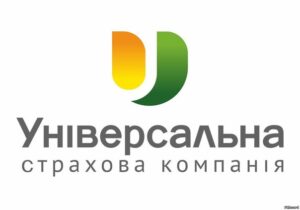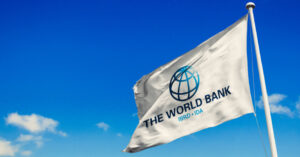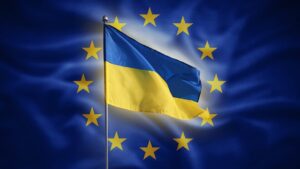
In January-April 2025, Ukrainian enterprises imported copper and copper products worth $61.62 million, which is 16.2% more than in the same period of 2024. Exports grew by 16.1% to $29.13 million. In April, imports amounted to $15.13 million, while exports amounted to $7.78 million.
Copper is widely used in electrical engineering, pipe manufacturing, alloy production, medicine, and other industries.

As of May 16, Ukraine had sown 4.95 million hectares with spring grains and legumes, which is 87% of the plan, but slightly behind last year’s figure of 5.1 million hectares, the Ministry of Agrarian Policy and Food reported on Friday.
According to its data, 631,500 hectares were sown during the week. At the same time, buckwheat is being sown in 11 regions and soybeans in 20.
As noted by the Ministry of Agrarian Policy, 3.5 million hectares have already been sown with corn (2.9 million hectares a week earlier), 743,100 hectares with barley (733,400 hectares), 215,200 hectares with spring wheat (212,600 hectares), 208,900 hectares with peas (205,700 hectares), and 157,000 hectares with oats (157,000 hectares). ha (212.6 thousand ha), peas – 208.9 thousand ha (205.7 thousand ha), oats – 157 thousand ha (157 thousand ha), buckwheat – 16.3 thousand ha (7 thousand ha), millet – 25.2 thousand ha (15.7 thousand ha).
According to the plan, corn sowing reached 87%, barley – 96%, spring wheat – 95%, peas – 97%, oats – 98%, buckwheat – 24%, millet – 33%.
Last year, as of May 16, corn was sown on 3.56 million hectares, wheat – 249 thousand hectares, barley – 781.6 thousand hectares, peas – 162.1 thousand hectares, oats – 166.7 thousand hectares, buckwheat – 48.1 thousand hectares, millet – 43.1 thousand hectares.
According to information from the Ministry of Agrarian Policy, Poltava region leads in terms of sowing rates with 533,400 hectares, followed by Chernihiv region with 435,000 hectares, Vinnytsia region with 368,200 hectares, Kirovohrad region with 362,600 hectares, and Kyiv region with 359,200 hectares.
Technical crops were sown on an area of 3.9 million hectares, compared with 3.432 million hectares a week earlier. In particular, sunflower crops reached 3.9 million hectares (3.5 million hectares a week ago and 4.6 million hectares last year), soybeans – 1.73 million hectares (1.3 million hectares and 1.64 million hectares) and sugar beets – 0.22 million hectares (0.22 million hectares and 0.25 million hectares).
The Ministry of Agrarian Policy notes that sunflower crops currently account for 77% of the plan, soybeans – 72%, and sugar beets – 99%.

Insurance company Universalna (Kyiv) collected UAH 619.325 million in gross insurance premiums in January-March 2025, which is 40.6% more than in the same period of 2024, according to the website of the rating agency Standard-Rating.
The agency updated the credit rating/financial stability (reliability) rating of IC Universalna at uaAAА on the national scale based on an analysis of its performance during the period in question.
According to the published data, revenues from individuals increased by 45.14% to UAH 364.518 million, while revenues from reinsurers, on the contrary, decreased by 49.77% to UAH 2.413 million. Thus, at the end of the first quarter of 2025, individuals prevailed in the company’s client portfolio.
Insurance payments sent to reinsurers in January-March 2025 decreased by 15.92% compared to the same period in 2024, to UAH 11.803 million. Thus, the reinsurers’ share in insurance premiums decreased by 1.28 percentage points to 1.91%.
The insurer’s net premiums increased by 42.46% to UAH 607.522 million, while net earned premiums showed an increase of 31.15% to UAH 634.173 million.
The volume of insurance payments made by PJSC “IC ‘Universalna’ in the first quarter of 2025 increased by 28.26% compared to the same period in 2024, to UAH 273.782 million, while the level of payments decreased by 4.25 percentage points, to 44.21%.
According to the results of the first three months of 2025, compared to the same period in 2024, the insurer’s operating profit increased by 74.34% to UAH 77.435 million, and net profit increased by 58.05% to UAH 81.719 million.
As of April 1, 2025, the company’s assets grew by 3.61% to UAH 2.017 billion, equity increased by 8.39% to UAH 1.056 billion, liabilities decreased by 1.18% to UAH 960.603 million, cash and cash equivalents increased by 9.55% to UAH 630.669 million.
The RA emphasizes that as of the reporting date, IC “Universal” was very well provided with equity capital, which exceeded its liabilities by 9.93%.
In addition, the RA notes that IC “Universalna” has formed a portfolio of current financial investments in liquid instruments in the amount of UAH 1.255 billion, consisting of bank deposits (UAH 1.008 billion) and government bonds (UAH 247.056 million). Thus, as of the beginning of the second quarter of 2025, cash and cash equivalents covered 65.65% of the liabilities of PrJSC IC Universalna, and liquid assets (cash, bank deposits, and government bonds) exceeded the insurer’s liabilities by 1.96 times.
The main shareholder of IC “Universalna” is Fairfax Financial Holdings Limited (Canada), a holding company that, through its subsidiaries, is primarily engaged in accident insurance, property insurance, and investment management.

The World Bank (WB) Board of Directors has approved additional financing for Ukraine in the amount of $84 million for the HOPE project to rebuild housing damaged by Russian aggression, according to the website of the Ministry of Finance of Ukraine.
“Ukraine will receive $84 million in additional funding from the World Bank for the project “Housing Repair for the Restoration of People’s Rights and Opportunities (HOPE). The funds will be used to restore housing damaged by Russian aggression under the ‘eRecovery’ program,” the statement said.
It is noted that on May 15, an agreement on additional funding between Ukraine and the International Development Association was signed by Deputy Prime Minister for the Restoration of Ukraine – Minister of Community and Territorial Development Oleksiy Kuleba and World Bank Regional Director for Eastern Europe Bob Som.
The Ministry of Finance noted that the World Bank’s Board of Directors approved the decision on May 9.
It is expected that this funding will enable more than 25,000 households to repair their homes.
The NORE project aims to address urgent and critical needs for the repair of partially damaged individual and multi-family residential buildings in communities controlled by the Ukrainian government that have been affected by the Russian Federation’s aggression.
As reported on April 18, Ukraine will get $84 million from the World Bank as part of the HOPE project. The Cabinet of Ministers made this decision on April 18.

In 2024, Ukraine became one of the three largest exporters of agricultural products to the European Union, according to Eurostat.
According to the published information, the largest share of imports to the EU came from Brazil (8.8%, EUR 17.1 billion), the United Kingdom (8.5%, EUR 16.6 billion), Ukraine (6.7%, EUR 13.1 billion), and the United States (6.1%, EUR 12.0 billion). China (5.1%), Norway (4.7%), and Turkey (4%) were also among the main suppliers of agricultural products to the EU.
The EU’s main partner for agricultural exports in 2024 was the United Kingdom with a share of 23.0% (EUR 54.0 billion), followed by the United States (12.8%; EUR 30.1 billion), Switzerland (5.4%; EUR 12.6 billion) and China (5.3%; EUR 12.3 billion).
Eurostat also noted that in 2024, the EU exported agricultural products worth EUR 234.1 billion and imported EUR 194.9 billion, resulting in a surplus of EUR 39.2 billion. Compared to 2023, both exports and imports increased by 2.8% and 6.7%, respectively.
The volume of trade in agricultural products in the EU between 2014 and 2024 increased by 59%, with exports growing by 58% and imports by 60.2%, equivalent to an average annual growth of 4.7% for exports and 4.8% for imports.
As reported, in 2022, the EU lifted restrictions on Ukrainian imports and introduced a so-called customs visa-free regime. According to European media reports, new rules will come into force on June 6, 2025, with duties and quotas on Ukrainian exports being reinstated. The EU is currently preparing a transitional regime that will limit duty-free agricultural exports, including grain, honey, eggs, sugar, and other products.
The initiator of the changes was Poland, which stated the need to protect European farmers. A number of EU countries supported the tightening of trade conditions with Ukraine.
According to the Ukrainian government’s estimates, the abandonment of the current rules will result in the country losing around EUR 3.5 billion per year.